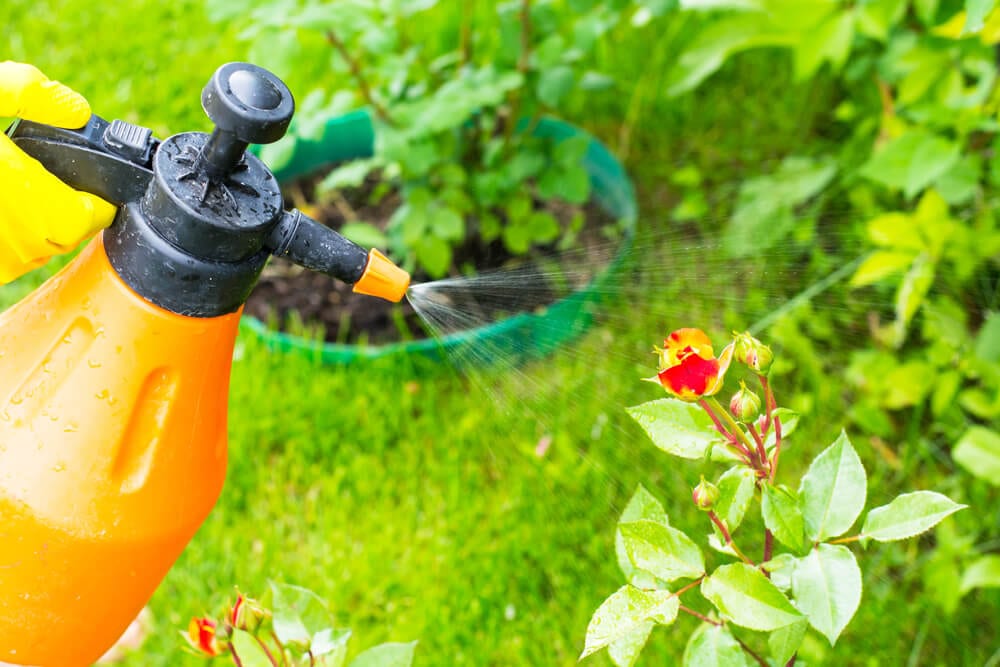Organic Pest Control for Container Gardens

Organic Pest Control for Container Gardens: A Greener Approach
Gardening in containers is a joy, isn't it? It's like having a tiny, portable ecosystem right at your fingertips. But what happens when pests invade your little paradise? Before you reach for the heavy chemicals, consider organic pest control for container gardens. It's not just about keeping your plants healthy; it's about creating a safe, eco-friendly space for you, your family, and our planet.
Why Choose Organic Pest Control?
First things first, why go organic? Well, for starters, organic gardening tips are often cheaper and safer than conventional methods. You're not just protecting your plants; you're also protecting beneficial insects, birds, and even your pets and kids. Plus, it's a great way to reduce your carbon footprint.
Understanding Your Container Garden Ecosystem
Before we dive into organic pest control methods, let's understand your container garden's ecosystem. It's a delicate balance of plants, soil, water, and sunlight. When pests enter the picture, they're usually attracted to something in this balance. So, the first step in container garden care is maintaining a healthy ecosystem.
Prevention: The First Line of Defense
Prevention is key in organic pest control. Healthy plants are naturally more resistant to pests. So, make sure your plants are well-fed and watered. Also, keep your garden clean. Dead leaves and weeds can harbor pests.
Identifying Common Container Garden Pests
Before you can control pests, you need to know who you're dealing with. Common container garden pests include aphids, spider mites, whiteflies, and scale insects. Each has its own preferences and weaknesses.
Organic Pest Control Methods
Now, let's get to the heart of the matter: organic pest control for container gardens. Here are some tried-and-true methods:
Physical Control
Sometimes, the simplest methods are the best. Picking off pests by hand, using barriers like netting, or blasting pests with water can be quite effective.
Biological Control
Beneficial insects like ladybugs, lacewings, and parasitic wasps can be your allies. They feed on common garden pests. Attract them to your garden with companion plants like dill, yarrow, and marigolds.
Homemade Pest Control
Why buy expensive chemicals when you can make your own homemade pest control solutions? Here are a few recipes:
- Soap Spray: Mix 1 tablespoon of mild dish soap with 1 quart of water. Spray on plants to kill soft-bodied pests like aphids and mites.
- Neem Oil Spray: Mix 2 teaspoons of neem oil with 1 teaspoon of mild dish soap and 1 quart of water. Neem oil is a natural pesticide that disrupts the life cycle of many pests.
- Garlic Spray: Blend 3-4 cloves of garlic with 1 tablespoon of vegetable oil, 1 teaspoon of mild dish soap, and 1 quart of water. Let it sit overnight, then strain and spray. Garlic is a powerful natural pest repellent.
Eco-Friendly Pest Control Products
If DIY isn't your thing, there are plenty of eco-friendly pest control products on the market. Look for products with the OMRI (Organic Materials Review Institute) seal. And always remember to follow the instructions on the label.
Companion Planting for Pest Control
Companion planting is a clever way to repel pests naturally. Certain plants have natural repellent properties. For example, marigolds repel nematodes (microscopic worms), while mint repels ants and rodents.
Maintaining a Healthy Garden
Remember, organic pest control for container gardens isn't just about fighting pests; it's about maintaining a healthy garden. That means regular care, observation, and quick action when you spot a problem.
When to Call in the Pros
Sometimes, despite our best efforts, pests get the upper hand. If you're feeling overwhelmed, don't hesitate to call in a professional. Look for companies that specialize in eco-friendly pest control.
For more information on controlling pests safely and effectively, check out the EPA's guide on controlling pests.
Conclusion
Organic pest control for container gardens isn't just about keeping your plants healthy; it's about creating a safe, eco-friendly space for everyone. It's about observing, understanding, and working with nature, not against it. So, next time you see a pest in your garden, don't reach for the chemicals. Try the organic approach. Your plants, and the planet, will thank you.
FAQs
Q: What is the best natural pest repellent?
A: There are many effective natural pest repellents, including garlic, neem oil, and diatomaceous earth. The best one depends on the type of pest you're dealing with.
Q: How can I prevent pests in my container garden?
A: Prevention is key in organic pest control. Maintain healthy plants, keep your garden clean, and use physical barriers like netting.
Q: What are some good companion plants for pest control?
A: Marigolds, mint, dill, and yarrow are all great companion plants for pest control. They either repel pests or attract beneficial insects.
Q: Are there any eco-friendly pest control products?
A: Yes, there are many eco-friendly pest control products on the market. Look for products with the OMRI seal.
Q: When should I call a professional for pest control?
A: If you're feeling overwhelmed by a pest infestation, or if you're dealing with a particularly destructive or dangerous pest, it's a good idea to call a professional. Look for companies that specialize in eco-friendly pest control.
0 Response to " Organic Pest Control for Container Gardens"
Post a Comment